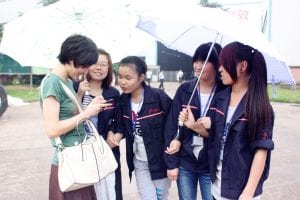UCL-HKU collaborations offer solutions to the world’s Grand Challenges
By By Guest Blogger, on 25 September 2017
By Greg Tinker, Communications Manager, Office of the Vice-Provost (Research)
A new partnership between UCL and Hong Kong University (HKU) was established during academic year 2016-17 to encourage joint research relating to the UCL Grand Challenges.
The joint scheme encourages cooperative projects on pressing global issues, as identified by the UN Sustainable Development Goals. Its highlighted priorities include urbanisation and sustainable cities, healthy ageing, global health, translational medicine, food and water safety and security, transformative technology, transcultural studies including China studies, and justice and equality.
UCL’s Grand Challenges programme – addressing Global Health, Sustainable Cities, Cultural Understanding, Human Wellbeing, Transformative Technology and Justice & Equality – provides an inter-institutional strategic framing for the joint scheme.
The first awards were made in April this year, to two projects:
- ‘Writing in the City’ – to Professor Li Wei of the Culture, Communication and Media department at the UCL Institute of Education, collaborating with Professor Adam Jaworski at HKU’s School of English
- ‘Non-pharmacological interventions in dementia’ – to Dr Aimee Spector, of UCL Clinical, Educational and Health Psychology, collaborating with Dr Gloria HY Wong and Professor Terry YS Lum of HKU’s Department of Social Work and Social Administration
Dr Spector has already begun work on her project, focusing on treatments like Cognitive Stimulation Therapy for dementia sufferers. The collaboration will result in a conference in Hong Kong to be held in December, featuring presenters from China, Hong Kong, the US, New Zealand, Italy, Brazil and Denmark. It will also include CST training for attendees from around the world.
The joint UCL – HKU team has also been working on a joint publication, involving a systematic review of Mindfulness-based interventions for people with cognitive impairment. The collaboration has built a close relationship between Dr Spector and her HKU counterparts, leading to exchanges of doctoral students between London and Hong Kong. The students will benefit from working and studying abroad and their engagement will hopefully lead to further joint publications.
Dr Ian Scott, Director of the UCL Grand Challenges and cross disciplinary development, said: “It’s good to know that the first projects in UCL’s joint scheme with Hong Kong University are making great progress. At UCL we are confident that there will be strong downstream research and societal benefits from bringing UCL and HKU researchers together to address globally significant issues from London and Hong Kong perspectives.
“The HKU-UCL joint scheme holds promise to be an important model for other international strategic partnerships between UCL and other world-class universities like HKU, framed by a mutual determination to harness the best expertise in the world in actions designed to prepare now for the challenges of the 22nd century.
“While the 2016-17 UCL-HKU projects are still in progress, we look forward to the outcome of the current call for the next proposals for joint work in academic year 2017-18, to support further high quality joint initiatives in tackling and finding novel pathways to solutions to the world’s Grand Challenges.”
 Close
Close




